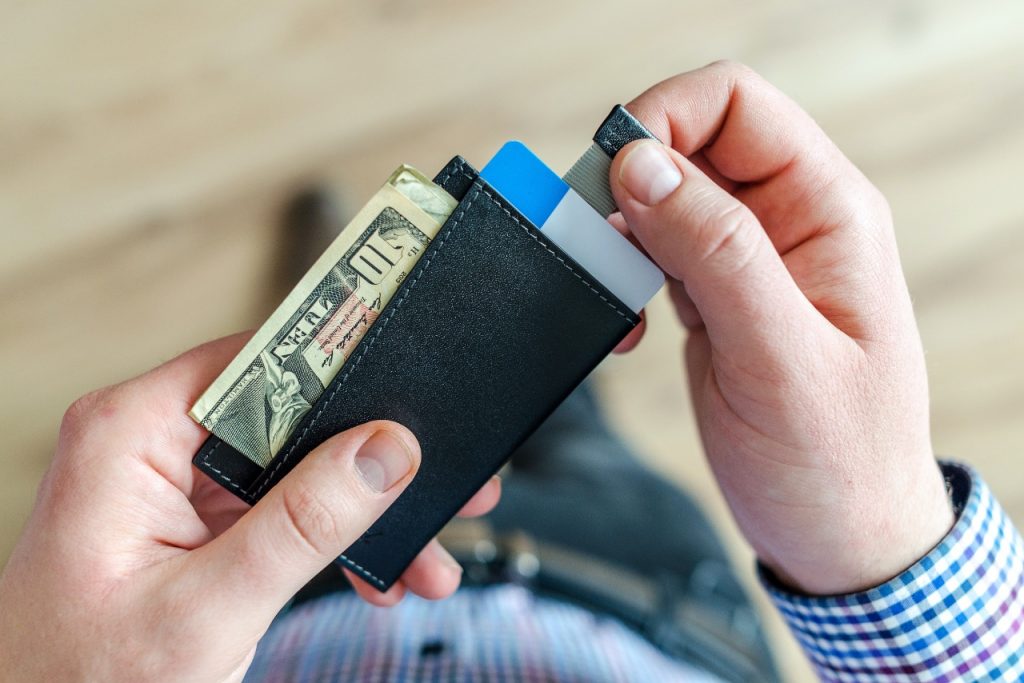With all of the aforementioned stated, it is not hard to find the best way to get out of debt to conclude that we should start to manage expenses just a little bit better. Individually, and as nations.
How to Get Out of Debt Fast?
You’re not alone who is searching for how to get rid of debt. Most people panic when their debt reaches hazardous levels. Getting out of debt is definitely not something that anyone’s looking forward to, but it does not have to be that scary if you follow the proven routine, and sacrifice some of your expensive habits for the greater good. In this article, we will explain to you the process of how to get out of debt in several moderately simple steps.
1. Smart Budgeting
Most of us find any sort of accounting stressful. Especially when we are in debt. However, the sooner you start planning your smart budget – the better. Your plan should also include some austerity measures, definitely some forecasting, and you will need to start recording even the smallest expenses. There are many ways to save money on things that you pay for every day. The following are just some of them:
Introduce food allowance, instead of eating out, start cooking at home; Decrease your gas allowance, exchange your SUV or a truck for an eco-friendly car and do several errands per one carpool. You can also start doing regular carpooling or use public transportation; Stop following fashion trends! Buy good-quality and less expensive clothes and accessories; Take a tight grip on your leisure spending. Spend more time in nature, take long walks etc. Move into a smaller apartment, with lower rent. If you are paying the mortgage on a big house, think about getting a roommate;
You can follow your progress with some of the popular personal finance apps. The good thing about this modern-day technology is the fact that you can monitor and manage expenses at all times, and when you have a reminder about your debt right there in your pocket – a shopping spree quickly becomes boring and depressive. But hey, we are not here to have fun.
2. Avoid Renovation Projects (of Any Sort)
Many people simply choose to downsize their residences in times like this. There are even people who decide to renovate their house during a recession or when they are deeply in debt, and they hope that their investment will pay off when they decide to sell. If you are not keeping up with the current news, this is not the best time for you to mess around with real-estate. And if you are in debt, tying all of your funds to a big construction project is definitely the worst idea that you can have. There are literally dozens of ways for your project to become a full-blown disaster. Sometimes you underestimate the amount of work that needs to be done. Sometimes you are not that well informed about the state of the market (allegedly, it is about to crash), so you end up investing in something that you cannot sell. Not to mention that contractors tend to delay their works to the very end when they are working on multiple projects not just because your local contractors lack knowledge or organization when it comes to logistics, but also because you cannot possibly have a firm schedule in this type of work, and stick to it 100%. Big projects, of any sort, are always accompanied by unexpected expenses, and all this will definitely disrupt your debt repayment plan. However, if you firmly decided to invest all your funds into a renovation project to resell your house and settle your unpaid debt, make sure that you hired a respectable and legitimate contractor for the job. Make sure that he is insured, that he has all the right permits, and check if the contractor purchased surety bonds and secured your investment. These bonds guarantee that the contractor will finish the project promptly and following the contract.
3. Renegotiating Your Payment Plan
Most creditors are open to negotiation, especially when they realize you won’t be able to repay your debt in full (or at all). Know that it is in their interest to help you, and if you are not able to repay your debts – that is not a good situation for anyone involved, not just you. Before you start negotiating, calculate your budget to figure out how much money you can offer them on a monthly (or a bi-weekly) basis. When doing this, think about the lowest amount they will accept, and always subtract your regular monthly costs for bills, food etc. You know the drill to manage expenses.
4. Sit-down Meeting
When you contact creditors, you should ask for a sit-down meeting. Of course, the offer needs to be real and acceptable, and in most cases, it implies subtracting late payment and legal fees. Make them an offer, and if they refuse it, ask to speak to their supervisor and ask him/her for a proposition. When you finally reach an agreement, get it in writing and follow the rest of the repayment plan. When you pay off that agreed amount in full, remember to ask creditors to remove negative information from your credit report.
5. Resettlement
If by any chance your debt completely goes out of hand, you are left only with two more options. One is the resettlement of your creditors. If they realize they won’t be able to get all of the agreed funds back, they might settle for less. Of course, this will heavily influence your future credit score, and it will show a delinquent payment. If your creditors don’t accept your resettlement proposition, your only way out is to file for personal bankruptcy. This move will completely destroy your credit score (for at least 7 years), but the court might delete your debt. For this process, you should hire a bankruptcy attorney.
